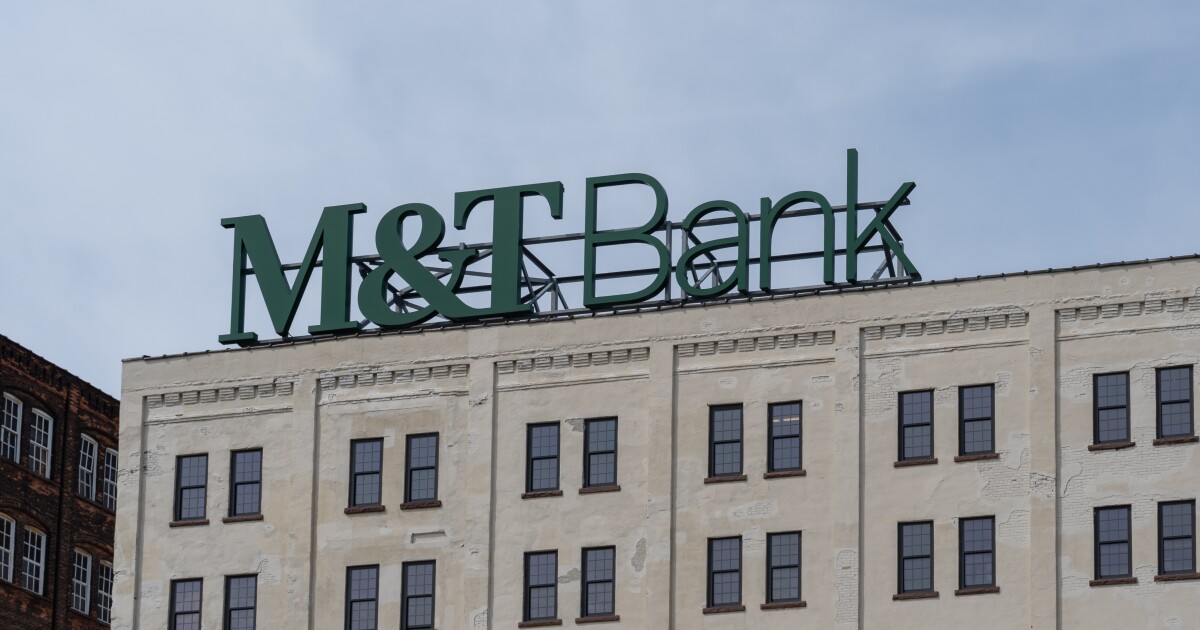
Despite the recent tariff policies and economic volatility, the Buffalo, New York bank saw its bottom line trend slightly up from the previous year.
Citi Securities analyst Keith Horowitz wrote in a Monday morning note that the slightly elevated compensation and somewhat slower loan growth could be attributed to "seasonality."
The $208 billion-asset bank's earnings per share still represented a year-over-year increase of about 10%.
"
Still, as the chances of a recession seem to be growing, the bank on Monday lowered its outlook for full-year net interest income to $7.05 billion-$7.15 billion, from $7.1 billion-$7.2 billion previously. It now expects net interest margin in the mid to high 3.60s, up from its previous forecast of mid 3.60s.
It cut its 2025 target for loans to $135 billion-$137 billion, from $137 billion-$139 billion previously.
Expenses hit $1.42 million in the quarter, up about 1% from the year-ago quarter, and mostly in line with analyst estimates. The expenses reflect "seasonal salaries and employee benefits expense of $110 million and higher outside data processing and software costs, partially offset by lower other costs of operations."
The company brought in net interest income of $1.7 billion, roughly flat compared with the same period a year prior of $1.68 billion, and slightly below consensus analyst estimates of $1.71 billion, in part due to two fewer calendar days in the recent quarter.
The bank has spent the last few years working to reduce its commercial real estate loan portfolio, as scrutiny from regulators and investors has increased, especially among office assets.
Deposits fell 1.7% from a year ago, weighed by a drop in interest-bearing deposits at
The bank shrank its expectations for full-year deposits to $162 billion-$164 billion, from $164 billion-$166 billion previously. In its comments,
The bank said during
"Whether it takes 20 years or whether it's something shorter, that really depends on if we have inorganic growth in those periods," Bible said at the time.
The bank's last deal was its purchase of People's United Financial in Bridgeport, Connecticut, at the start of the Biden administration, which took longer to close than had been expected.



